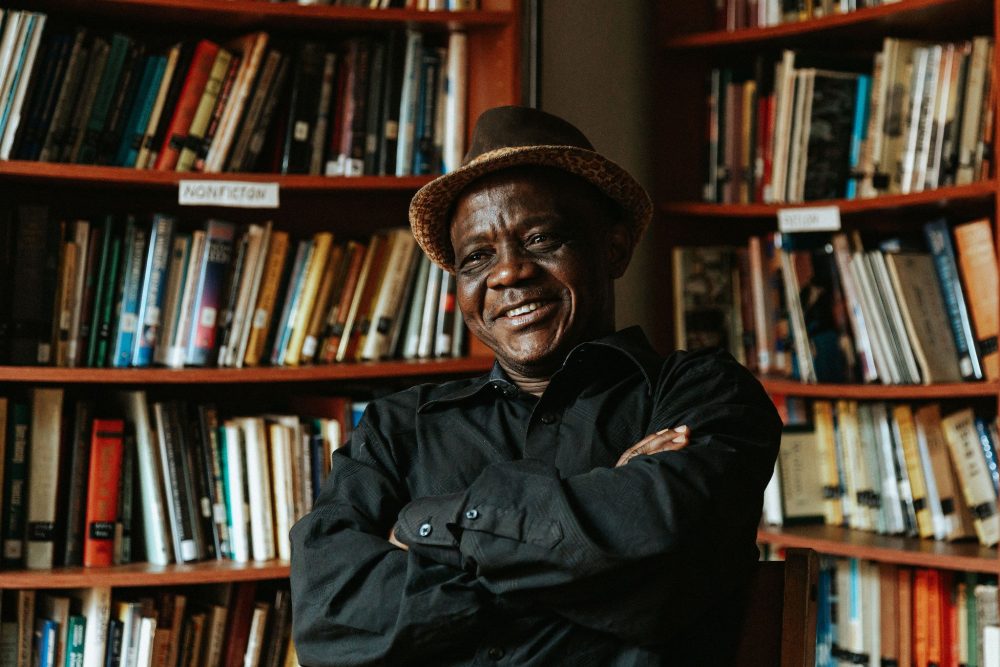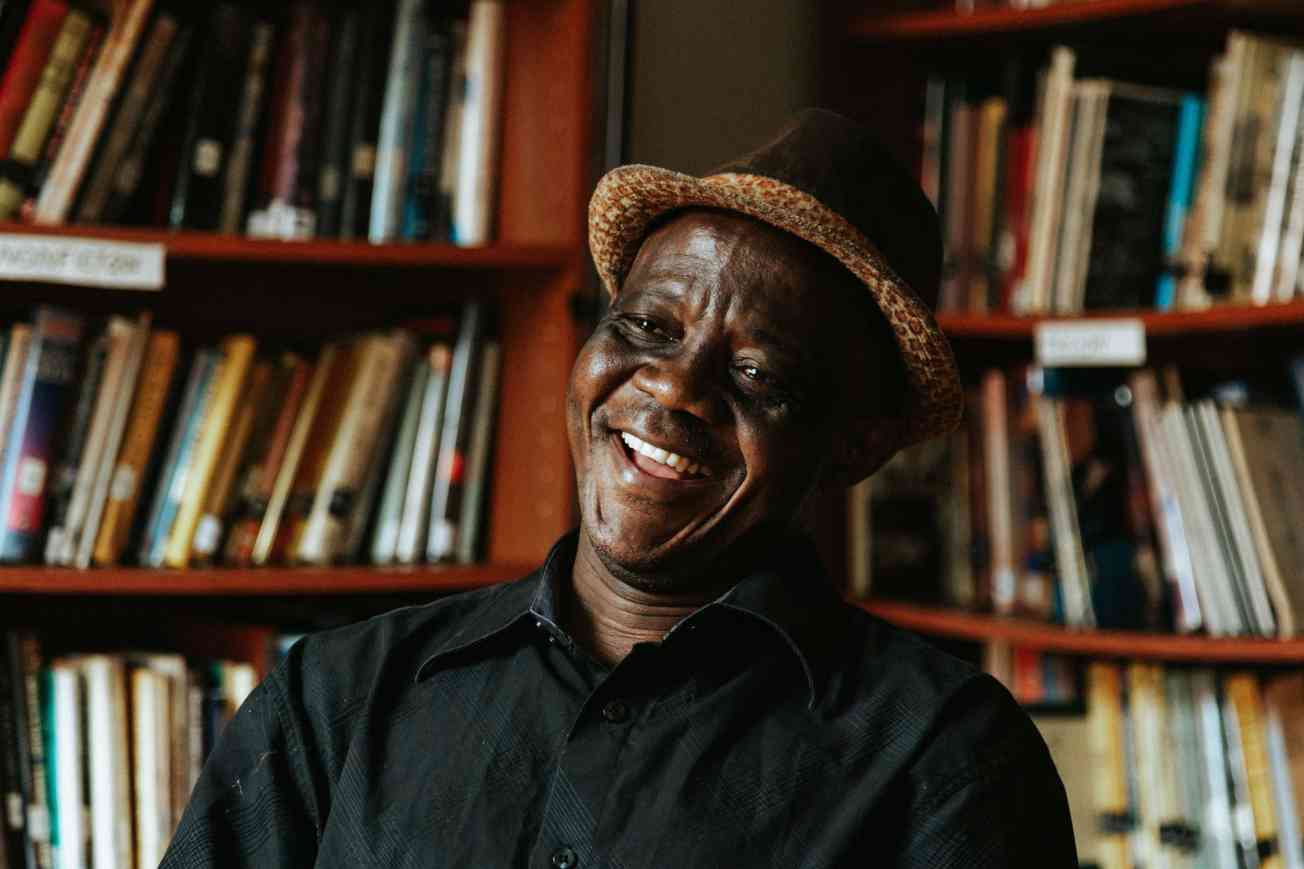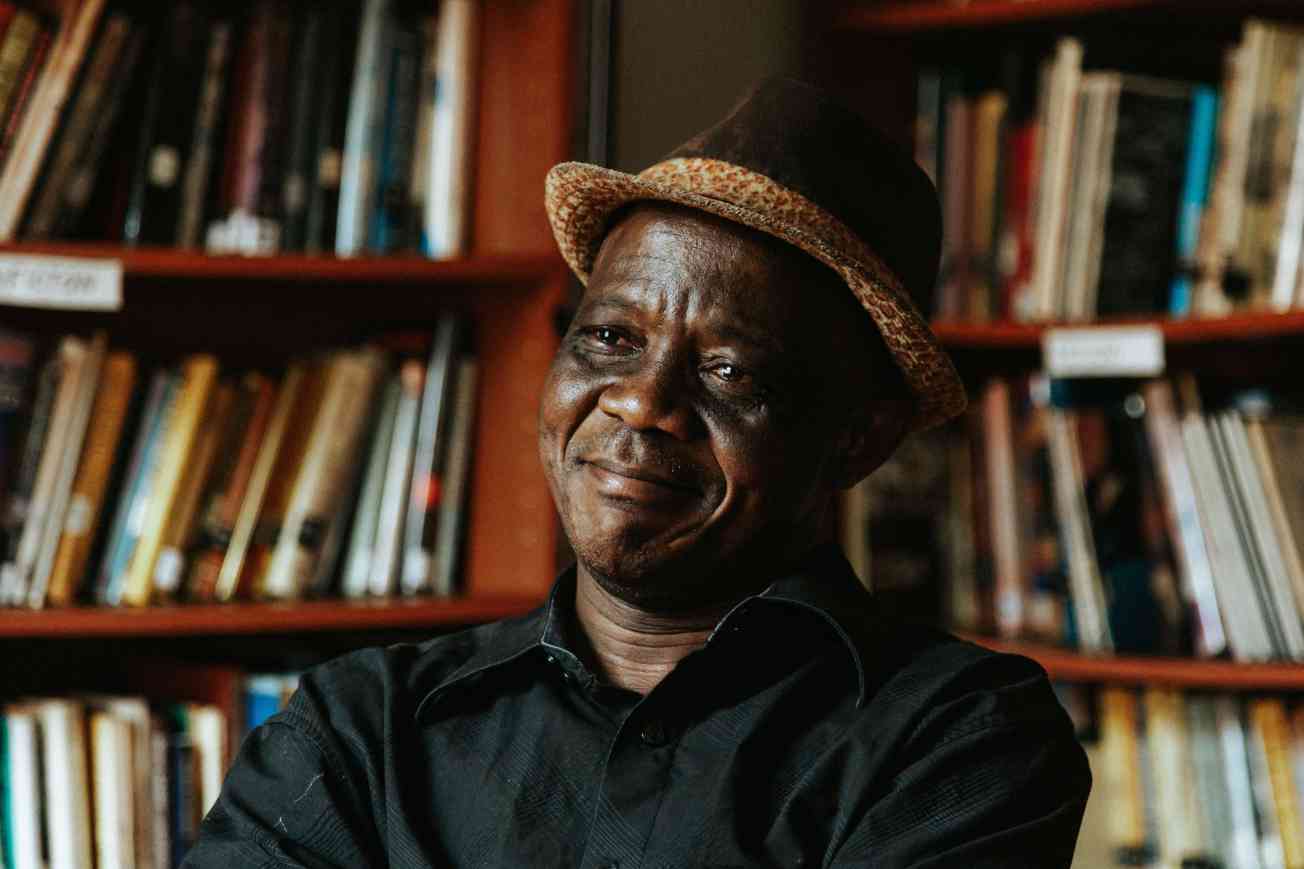Bonding as Newcomers
We gather together so we don’t lose our culture

My name is Shindano. I’m from the Democratic Republic of Congo, in the region of Kivu.
I come from the tribe of Bembe. I am the youngest of three boys, but my mother and father and brothers have passed away. It’s just me.
We left the DRC because of the war. The war came without notice. I was with my brothers. We left the DRC 25th October 1996. We went in a small boat. When we arrived, there were a lot of people on the beach. There were people who didn’t have money. So they were trying to give the children to our family to take them to Tanzania. So let’s say there’s one family who was supposed to be in the boat to cross the river, another family will give their baby girl to that family so she will become the wife of that family, just to save her life.
I had money, so I got across. I was just by myself then.
I moved to Kigoma, Tanzania. From there they took us to the camp. We got there December 17th, 1996.
Everybody was walking like a bunch of animals going toward the camp.
I spent 18 years in that camp. I got married there. God blessed me with a wife. We had six kids in the camp.

I have been in the US for 8 years. My children and my wife came with me. I was welcomed by the International Center in Bowling Green Kentucky first. That is the resettlement agency. And then through friends, I found Refuge Bowling Green. Daniel (Refuge Bowling Green’s Executive Director) taught me how to drive. He taught all my family how to drive.
Learning to drive was difficult. This was not something that was taught to us when we were young. So I had to learn it when I was old. I took the test with an interpreter, and had to take it twice before I passed. But being able to drive is essential in Kentucky. It allows me to get to my job.
I am also trying to learn English, but it is very difficult. I work the night shift at my job. I start at midnight and get home at 8:30 in the morning. So when I come home I go to bed. When I tried to go to class, I would just fall asleep.
When you don’t speak the language, you can not tell people about the feelings you have. I need to go and find somebody to interpret for me. It is difficult to express myself. And sometimes the person who is interpreting is not able to say exactly what is in my heart.
If I knew the language, I would also be able to know the laws of America. I would know exactly what I need to do, and would be able to do it.
The resettlement agencies are not allowed to give refugees time to study and learn the language.
My caseworker helped me a lot. Several of my children have graduated from high school and they know the language. They help me too.
I would tell other refugees that life is fast and changing in America. $100 of food does not go very far. So we need to always train newcomers, especially the African people, how to manage money. We don’t receive this type of education back home.
Here, I am the president of the Congolese Association in Bowling Green. I work with other African people. We organize ourselves and gather together so that we don’t lose our culture. American culture is totally different. We want to maintain our African standards. That is something that is very important. We have a Board, with a president, a vice president, a secretary, and a treasurer. We collect funds so we can help each other if there is a problem. For example, if somebody passes, we will allow you to use these funds for burial.
We also want our children to study hard.

We want to help our children study like other children here, so they can achieve a high level of excellence. I am very proud of my children.
They are successful.
When you talk about us and advocate for us, please don’t always call us refugees. We are refugees only in America. When the war is over, we will go back.
Our team members obtain informed consent from each individual before an interview takes place. Individuals dictate where their stories may be shared and what personal information they wish to keep private. In situations where the individual is at risk and/or wishes to remain anonymous, alias names are used and other identifying information is removed from interviews immediately after they are received by TSOS. We have also committed not to use refugee images or stories for fundraising purposes without explicit permission. Our top priority is to protect and honor the wishes of our interview subjects.